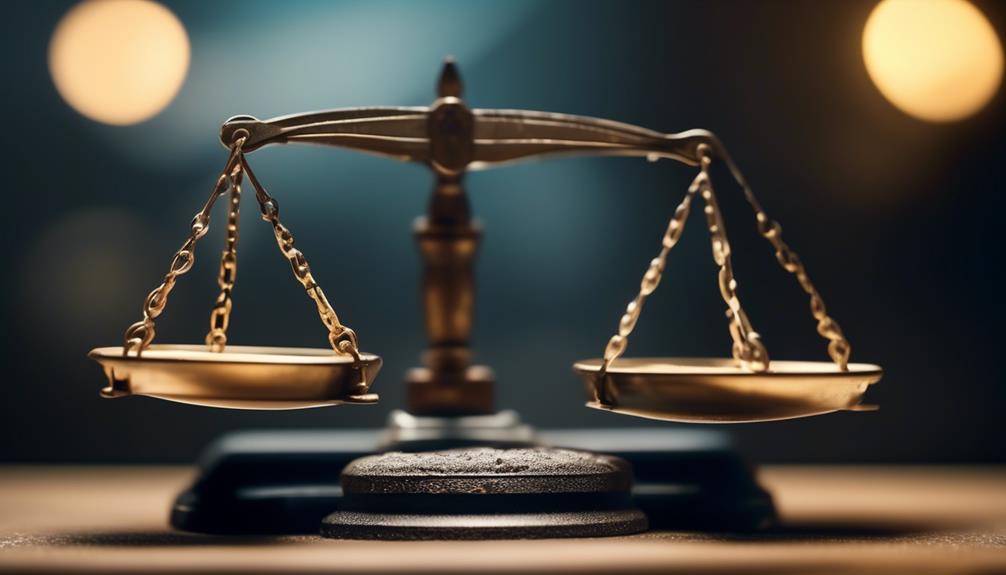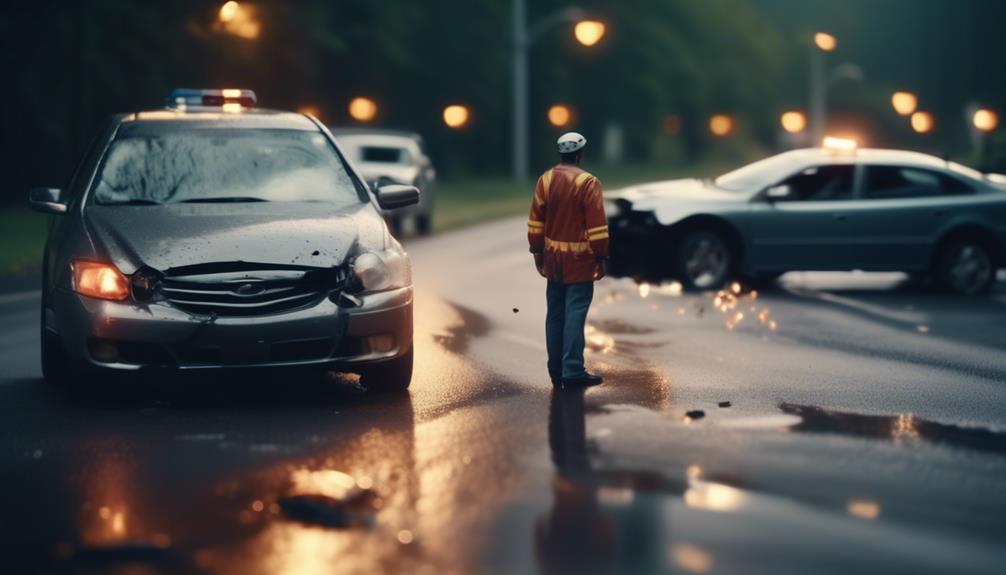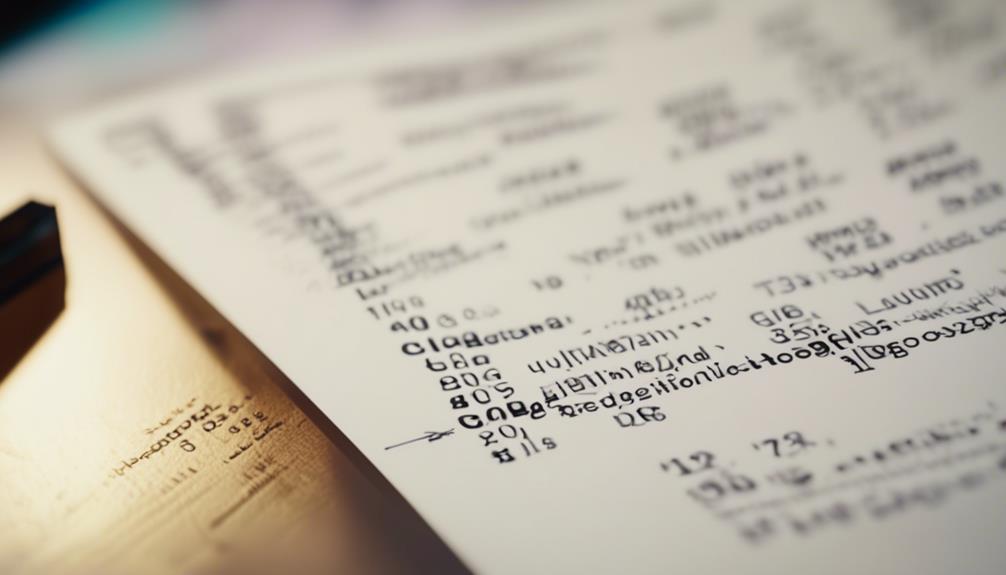Welcome to a world where your legal rights matter, and understanding the legal process is key. Picture this: you've been injured and are now faced with the daunting task of navigating personal injury protection and negligence laws in Georgia. It can feel like trying to find a needle in a haystack, but fear not – we're here to guide you through it all.
At Metro Atlanta Law, we believe that individuals should know their rights and understand the legal process, which is why we partner with top personal and criminal attorneys in Georgia. As you sit down for dinner or a coffee, let's delve into the intricacies of Georgia's negligence law and the ins and outs of personal injury protection. We want to equip you with the knowledge and confidence to navigate the legal landscape with ease.
So, shall we start this journey together and explore how these laws can impact your case? Let's dive in and shed light on your legal rights in the sea of legal complexities.
Key Takeaways
Navigating Personal Injury Cases in Georgia
- What are my rights after being injured in an accident in Georgia?
- How can a personal injury attorney help me seek compensation and protect my rights?
- What is the process of gathering evidence and negotiating with insurance companies in Georgia?
- What are the key steps involved in representing a personal injury case in court in Georgia?
- How can I request a free case evaluation to get the help I need after being injured in Georgia?
Georgia's Negligence Law Overview

Georgia's negligence law is all about helping you understand your rights when it comes to seeking compensation for losses caused by someone else's negligence. This is really important, especially in cases involving personal injury from things like car accidents, work accidents, dog bites, slip-and-fall accidents, wrongful death, and product liability. Knowing this law can make a big difference if you find yourself in a situation where you need to make a claim for compensation.
You see, in Georgia, the at-fault parties or their insurance companies might settle personal injury claims without going to court, or it might end up in a trial. It's good to know that Georgia follows a rule called 'modified comparative fault.' What that means is that if you were also at fault for the accident, the compensation you receive might be reduced based on the percentage of fault assigned to you. If you're found to be 50% or more at fault, you mightn't be able to collect any compensation at all.
Here's something else to keep in mind: In Georgia, there are no limitations on the compensation you can receive in a personal injury case. That's pretty significant, right? It means that if you're the injured party in a personal injury case, there are no limits to the compensation you can get.
Understanding all of this is really important when it comes to protecting yourself and knowing what to expect in case you ever find yourself in a personal injury situation.
Personal Injury Protection in Georgia

PIP in Georgia is a must-know topic for anyone with auto insurance. It's there to help you out, covering medical bills and lost wages no matter who's at fault in an accident. This is the law for all Georgia auto insurance policies, and you can get benefits up to $2,500 unless you decide to opt out.
So, what exactly does PIP cover? Well, it takes care of medical treatment, rehab costs, and some of the income you might lose because of the accident. And it's not just for you – your household family members and passengers in your car at the time of the accident are covered too. Pretty neat, right?
Here's something important: PIP benefits can work alongside other insurance coverages like health insurance, helping you get the most out of the benefits available. Knowing the ins and outs of PIP can make a big difference when it comes to getting the right coverage and financial protection if you're in an accident in Georgia.
No-Fault System in Georgia

Navigating the legal and insurance aspects of personal injury claims in Georgia means understanding the state's no-fault system. This system ensures that each driver's insurance covers their own medical expenses, regardless of fault. Its primary goal is to simplify the claims process and provide faster access to medical treatment for injured parties.
In Georgia, it's mandatory to have Personal Injury Protection (PIP) coverage, which helps pay for medical expenses, lost wages, and related costs.
While the no-fault system reduces the need to file a lawsuit against an at-fault driver, especially for minor injuries, it doesn't completely rule out the possibility, especially in cases of serious injury or significant damages. The no-fault system is an integral part of Georgia's negligence law and significantly impacts personal injury claims.
The no-fault system in Georgia is designed to provide a streamlined process for handling personal injury claims and ensuring that injured parties have access to medical treatment more quickly. It also sets the groundwork for insurance coverage and legal proceedings in cases of personal injury.
Understanding how the no-fault system operates is crucial for anyone involved in a personal injury claim in Georgia.
Strict Liability in Georgia

When it comes to strict liability in Georgia, it's important to understand how the law works and what it means for personal injury cases. In Georgia, strict liability applies in certain situations where a person is held responsible for their actions regardless of their intentions or level of care. This means that in cases involving strict liability, the injured party doesn't need to prove negligence, only that the harm occurred as a result of the defendant's actions. This can include scenarios such as defective product cases or certain dog bite incidents.
Understanding strict liability and how it applies in the Georgia legal system is crucial when it comes to personal injury claims. It's a complex area, and getting advice from a knowledgeable attorney can really help you navigate through it effectively.
Emotional Damage and Negligence in Georgia

When it comes to personal injury cases in Georgia, emotional damage and negligence are crucial factors to consider.
In Georgia, strict liability laws extend to situations where emotional distress results from the defendant's failure to exercise reasonable care. This means that individuals have a duty to act with reasonable care to avoid causing emotional harm to others.
If a victim is less than 50% at fault, they can seek compensation for emotional distress under Georgia's comparative negligence laws.
To navigate the complexities of emotional damage claims in Georgia, it's essential to seek guidance from a personal injury attorney who's well-versed in the state's laws.
Consulting with a Georgia personal injury attorney can help you understand your legal rights and options when pursuing a claim for emotional distress.
Conclusion
Hey there, it's crucial to know your rights and understand the legal process if you've been injured in an accident. With the right legal representation, you can navigate the complexities of the law, seek the compensation you deserve, and protect your rights.
Whether it's gathering evidence, negotiating with insurance companies, or representing you in court, a personal injury attorney can be your strongest ally in seeking justice and getting the maximum compensation for your injuries.
It's important to request your free case evaluation today and take the first step towards getting the help you need.






